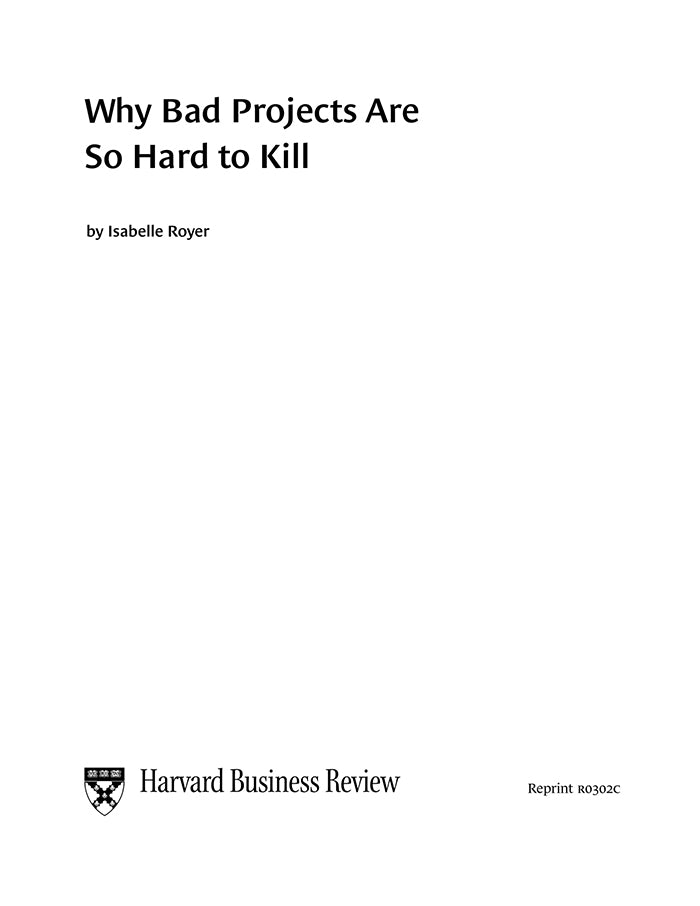Why Bad Projects Are So Hard to Kill
受取状況を読み込めませんでした
Even at the prototype stage, experts were saying the technology was obsolete. Yet, in the face of tepid consumer response, the company stubbornly kept increasing production capacity and developing new models. By the time it was finally killed, the initiative had cost the company an astounding $580 million and had tied up resources for 14 years. The product was RCA's SelectaVision videodisc recorder, and its story is hardly unique. Companies make similar mistakes--if on a somewhat smaller scale--all the time. But why? No one comes to work saying, "I'm going to pursue a project that will waste my company millions of dollars." Quite the opposite. They come to work full of excitement about a project they believe in. And that, surprisingly, can be the root of the trouble--a fervent belief in the inevitability of a project's ultimate success. Starting, naturally enough, with a project's champion, this faith can spread throughout the organization, leading everyone to believe collectively in the product's viability and to view any signs of impending doom merely as temporary setbacks. This phenomenon is documented here in two chillingly detailed case studies, one involving Essilor, the world's largest maker of corrective lenses for eyeglasses, and the other involving Lafarge, the largest producer of building materials. By counterexample, they point the way toward avoiding such morasses: assembling project teams not entirely composed of like-minded people and putting in place--and sticking to--well-defined review processes.
【書誌情報】
ページ数:12ページ
サイズ:A4
商品番号:HBSP-R0302C
発行日:2003/2/1
登録日:2012/3/28


